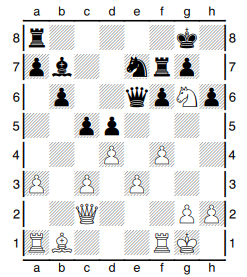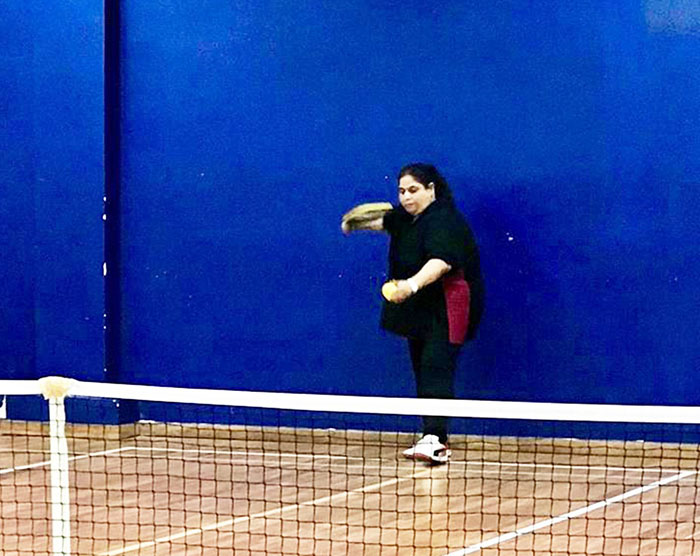In our series World Champion Born On This Date, today we shall see the life of Max Euwe- the champion who is not only known for his outstanding Chess playing skills but also for his immense contribution as an organiser and FIDE President.
Life
Max Euwe (May 20, 1901-November 26, 1981) was born in the Watergraafsmeer, in Amsterdam. He studied mathematics at the University of Amsterdam and earned his doctorate in 1926.
Euwe taught mathematics, first in Rotterdam, and later at a girls’ Lyceum in Amsterdam. After World War II, he became interested in computer programming and was appointed professor in this subject at the universities of Rotterdam and Tilburg, retiring from Tilburg University in 1971.
Chess
Max Euwe played his first tournament at age 10, winning every game. He won every Dutch Chess Championship that he entered from 1921 until 1952. He also won the title in 1955. His 12 Dutch Championship titles are still a record.
In 1933, Euwe played his first world Chess championship match in October 1935 against the then world champion, Alexander Alekhine. In the previous ten years, their score had been evenly matched at 7–7.
World Chess Champion
On December 15, 1935, after 30 games played in 13 different cities around the Netherlands over a period of 80 days, Max Euwe defeated Alekhine by 15½–14½. He became the fifth World Chess Champion.
Alekhine started the match brilliantly and quickly went three games ahead, but Euwe managed to even out and eventually win the match. His title gave a huge boost to chess in the Netherlands. It was the first world championship where the players had ‘seconds’ (trainers or helpers) to help them with analysis during adjournments.
Max Euwe’s win against Alekhine was regarded as a major upset – he had himself believed that beating Alekhine was unlikely but Grandmaster Salo Flohr, who helped Euwe during the match, thought Alekhine’s over-confidence was responsible for the loss. Euwe reigned the Chess world till going down to Alekhine in 1937 in the ‘return match’.
Max Euwe as an administrator
Max Euwe’s contribution to Chess does not end with his games or his writing. In fact, he is better known for the reforms he brought to International Chess and his unending efforts towards promoting and propagating Chess.
From 1970 (at age 69) until 1978, Euwe was the President of FIDE, The International Chess Federation. As the President, he usually did what he considered ‘morally right and in better interest of Chess’ rather than what was ‘legally correct or politically popular’.
On several occasions this brought him into conflict with the USSR Chess Federation on legally correct position about methods of selection/qualification of players to world championship cycle. Max Euwe was the only FIDE President who showed the wisdom and courage to take appropriate steps to ensure justice rather than simply following the laws, rules and regulations meticulously.
Learn from the Champion
Today we discuss see a little-known game of Max Euwe against a great attacking master of the pre World War II Era Edgard Colle, who is famous for his system of play, Colle system. Though Euwe preferred to play positional Chess, he possessed great sense of King side attack and has actually played many brilliant attacking games as it can be seen from the following game.
Max Euwe – Edgard Colle [E32]
Match Amsterdam (3), 15.12.1928
1.d4 Nf6 2.c4 e6 3.Nc3 Bb4 4.a3!?
The Samisch variation is still considered to be the sharpest option again Nimzo-Indian Defence.
4…Bxc3+ 5.bxc3 0–0 6.Qc2 d5 7.cxd5 exd5 8.Bg5 Qd6 9.e3 b6
The sharp 9…c5 was better.
10.Nf3 Bb7?!
The Bishop is poorly placed here, blocked by the ‘d5’ Pawn
11.Bd3 h6 12.Bxf6 Qxf6 13.Ne5 c5 14.Qa4
14.0–0 looks better.
14…Qd6 15.0–0 Nc6 16.f4 f6? 17.Ng6 Rf7
17…Rfd8 is better though White maintains initiative with 18.Qd1! Ne7 19.Nh4!
18.Bb1!? Ne7
18…Rc7! would have created reasonable counterplay.
19.Qc2 Qe6?
Edgard Colle
 Max Euwe
Max Euwe
19…Nxg6 was better though after 20.Qxg6 Kf8 21.Bf5 Bc8, White stands slightly better. A possible variation is 22.Qh7 Rc7 23.Bg6 Qe6 24.e4! with some chances for White.
20.Nh8! Qxe3+ 21.Kh1 cxd4?
21…f5 was better, though is winning anyway. For example, 22.Nxf7 Kxf7 23.Ba2 cxd4 24.cxd4 Qxd4 25.Qc7 Ba6 26.Rfe1 Re8 27.Rad1 Qc5 28.Bxd5+ Kf8 29.Qxa7 etc.
22.Qh7+ Kf8 23.Bg6! Nxg6 24.Nxg6+ Ke8 25.Qg8+ Black resigned.1–0




